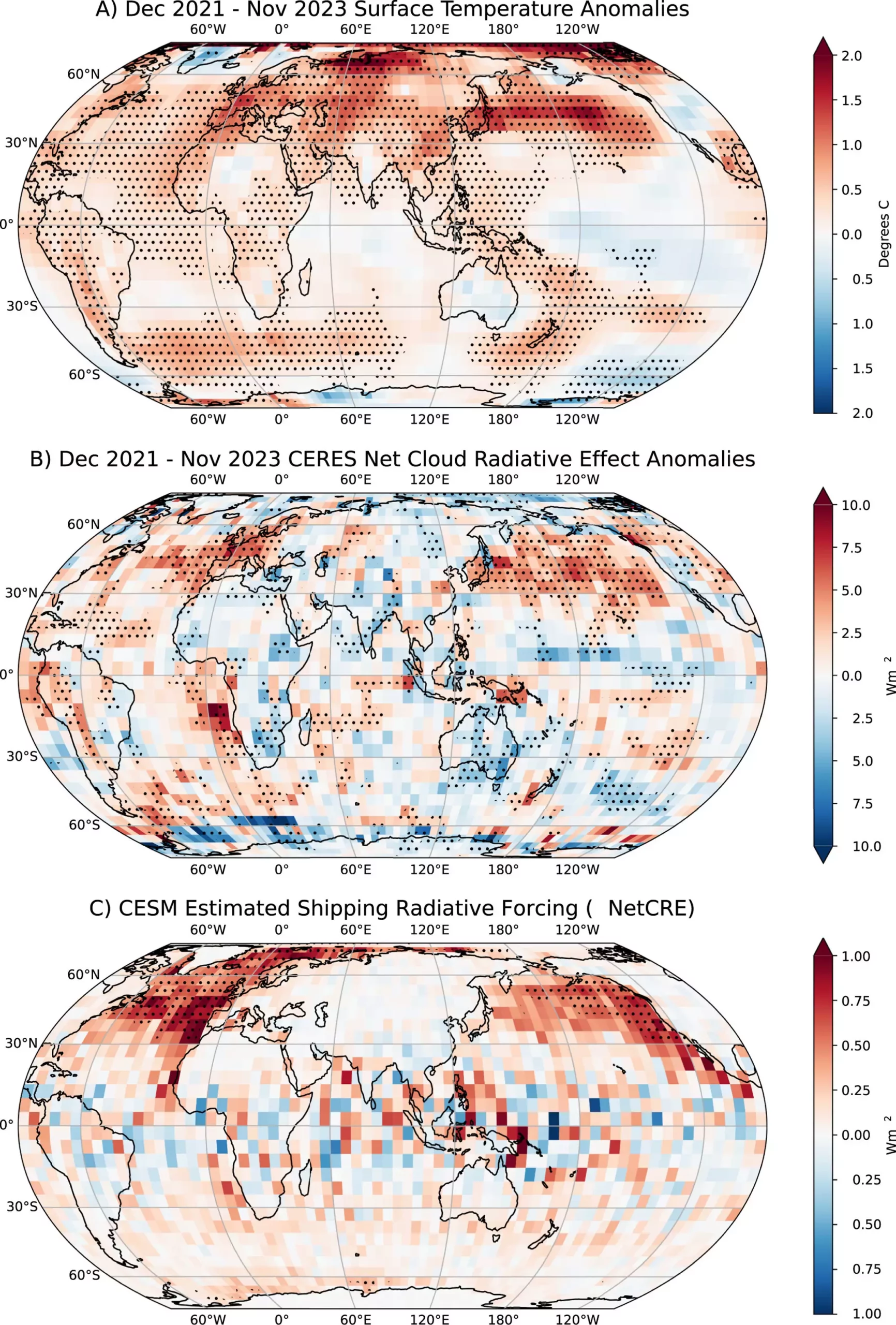In a year that has already been touted for its unprecedented temperature records, scientists are delving into the nuances of our society’s actions and their environmental consequences. In 2023, nearly 20% of the record warmth observed worldwide has been associated with reduced sulfur emissions from the shipping industry. This notable finding, which has gained traction within various scientific communities, raises pertinent questions concerning the implications of altering emissions regulations and their effects on climate dynamics.
The scientific exploration of this phenomenon stems from research conducted by experts at the Pacific Northwest National Laboratory and is detailed in the journal *Geophysical Research Letters*. The crux of the issue lies in regulatory transformations introduced in 2020 by the International Maritime Organization, which mandated an approximate 80% reduction in the sulfur content of global shipping fuel. This initiative, primarily aimed at enhancing air quality surrounding maritime hubs, inadvertently led to ecological repercussions, granting researchers a vital insight into how diminished sulfur aerosols influence global temperatures.
When ships utilize fuel laden with sulfur, they emit sulfur dioxide, which, upon contact with sunlight and other atmospheric agents, transforms into sulfur aerosols. These aerosols play a crucial role in creating ship tracks — linear clouds that form along shipping pathways. Originating from excess sulfur, these clouds reflect sunlight and consequently foster a cooling effect on the Earth’s surface. As regulations tightened, fewer sulfur aerosols have been released into the atmosphere, leading to increased warming rates, particularly throughout the Northern Hemisphere.
The research team employed advanced machine learning techniques to analyze over a million satellite images, enabling them to systematically quantify the decline in visible ship tracks — estimating between 25% to 50% reduction in these cloud formations. The research outlined a concerning trend: regions where the presence of ship tracks decreased also witnessed significant increases in temperature. This correlation raises alarms regarding the potential acceleration of global warming stemming from shipping policies aimed at reducing air pollution.
The implications are dire — if the reduction in sulfur emissions can instigate sharp increases in temperature, the climate response could have cascading effects, leading to more severe environmental changes in the foreseeable future.
However, attributing the entirety of 2023’s temperature hikes solely to sulfur emission regulations would be a simplistic interpretation. The degree of warming observed is multifaceted, influenced by various components such as greenhouse gas concentrations and oscillating climate patterns. Furthermore, researchers emphasize that while aerosols have a visibly cooling impact, they possess a relatively short atmospheric lifespan compared to greenhouse gases.
This interplay raises crucial questions about the balance between immediate air quality improvements and long-term climate health. When aerosols diminish, as they have with the recent regulatory changes, the ensuing spike in warming could be substantial, generating an unsettling feedback loop that complicates climate predictions.
Earth scientist Andrew Gettelman, leading the research, articulates a pressing dilemma: the swift reduction in pollutants like sulfur may paradoxically accelerate climate change — a scenario requiring careful navigation. As we transition toward decarbonization and strive to mitigate anthropogenic emissions, it is essential to better comprehend the gravity of these changes and their potential rapid consequences.
The complexity of climate science cannot be overstated. Researchers now face the critical task of synthesizing ship movement data, emissions tracking, and potential feedback from oceanic variables to refine our understanding of this evolving situation.
The evidence emerging from the study reveals that altering the shipping industry’s emission standards may invoke unforeseen climatic shifts, emphasizing the intricate tapestry of factors influencing global warming. While initiatives aimed at curtailing pollution are vital to improving air quality and public health, the inadvertent climatic consequences must be addressed. Furthermore, a call for further research and robust data collection surrounding marine emissions is essential as we strive to maintain equilibrium in the climate systems that sustain our planet. As we move forward, a careful, informed approach will be critical in ensuring the protection of both human health and our delicate ecosystem from the repercussions of our environmental policies.


Leave a Reply